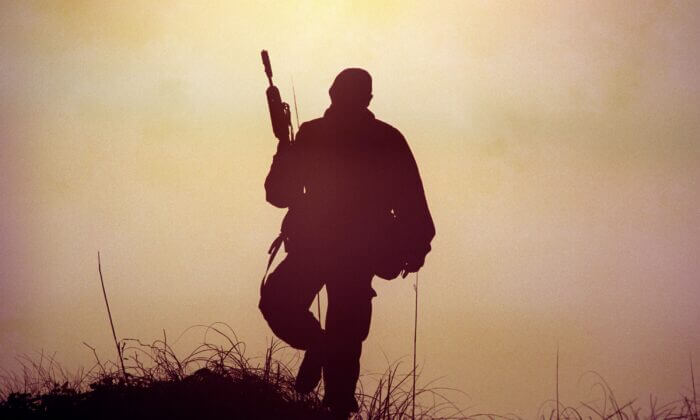The UK’s special forces operatives “repeatedly killed detainees and unarmed men in suspicious circumstances” in Afghanistan, the BBC alleged on Tuesday before airing a documentary on its investigation into the subject.
In two articles published on Tuesday about its “Panorama” programme scheduled to be aired later in the day, the BBC alleged that a Special Air Service (SAS) unit “may have unlawfully killed 54 people in one six-month tour” that began in November 2010, citing documents, ballistic analysis, and witness accounts.
But the Ministry of Defence (MoD) said the BBC had jumped to “unjustified conclusions from allegations that have already been fully investigated.” It also accused the broadcaster of being “irresponsible, incorrect,” and putting “our brave Armed Forces personnel at risk both in the field and reputationally.”
The BBC said its investigation started with “a cache of internal emails from within the headquarters of UK Special Forces (UKSF)” that was included in court documents, but didn’t have a “breakthrough” until the team obtained “hundreds of contemporaneous military reports” from an unnamed whistleblower.
After reviewing the documents, which contained detailed accounts of the SAS’s night raids—operations designed to detain Taliban commanders and disrupt bomb-making networks—the BBC said it had found “a pattern of suspicious killing.”
The broadcaster listed a number of examples where detainees were said to have been killed after pulling out hidden weapons and trying to engage SAS troops with them.
Citing an unnamed “senior officer who worked at UK Special Forces headquarters,” the BBC said there had been “real concern” at the UKSF as the number of such incidents was considered unusually high.
The report said senior officials were aware of the concern but didn’t report the suspicions to the Royal Military Police (RMP).
The BBC also said it was told by “individuals who served with the SAS squadron on that deployment” that they had witnessed SAS operatives kill unarmed people and plant weapons at a scene.
In another article, the BBC cited family members of individuals who were killed in a few of the incidents, who denied that those who were killed had been armed.
The Panorama team photographed bullet holes at a scene, which it said were clustered near the ground. The BBC report said a UKSF weaponry expert who saw the photos said the positions of the bullet holes suggest people were shot when they were lying down or sitting against the wall.
The BBC also suggested that the intelligence-gathering process that led to the raids and the killings was rushed and could have led to the killing of civilians.
The RMP in 2014 launched an investigation dubbed Operation Northmoor to examine alleged offences by British forces in Afghanistan, including some killings by the SAS squadron, between 2005 and 2013.
The investigation has not led to any prosecutions. But according to the BBC, RMP sources said the police force was not able to interview senior Special Forces officers owing to “a lack of cooperation from UKSF.”
In an email to The Epoch Times on Tuesday, an MoD spokesperson said: “We believe that BBC Panorama’s episode about SAS operations in Afghanistan, scheduled for broadcast Tuesday 12 July 2022, jumps to unjustified conclusions from allegations that have already been fully investigated.”
The spokesperson said the MoD had provided a “detailed and comprehensive statement to Panorama, unequivocally how two Service Police operations carried out extensive and independent investigation into allegations about the conduct of UK forces in Afghanistan.”
“Neither investigation found sufficient evidence to prosecute,” the spokesperson said. “Insinuating otherwise is irresponsible, incorrect, and puts our brave Armed Forces personnel at risk both in the field and reputationally.”
The spokesperson added that the MoD “stands open to considering any new evidence” and that “there would be no obstruction.”
“But in the absence of this, we strongly object to this subjective reporting,” the statement reads.
The BBC said in an email to The Epoch Times that it stands by its journalism, arguing that the documentary is the culmination of a four-year investigation including new evidence and eyewitness accounts and that it’s “firmly in the public interest.”
Asked about the allegations on Tuesday, armed forces minister James Heappey told MPs on the House of Commons Defence Select Committee that the MoD’s investigations into the allegations didn’t cross the “evidential threshold.”
“But let’s be clear. If there are new allegations, new evidence, that comes to light as a consequence of the ‘Panorama’ investigation, and that is then passed to the Service Police, we will absolutely investigate it. Nobody in our organisation, no matter how special, gets a bye on the law,” Heappey said.
In Australia, similar allegations led to the removal of one SAS squadron in November 2020.









